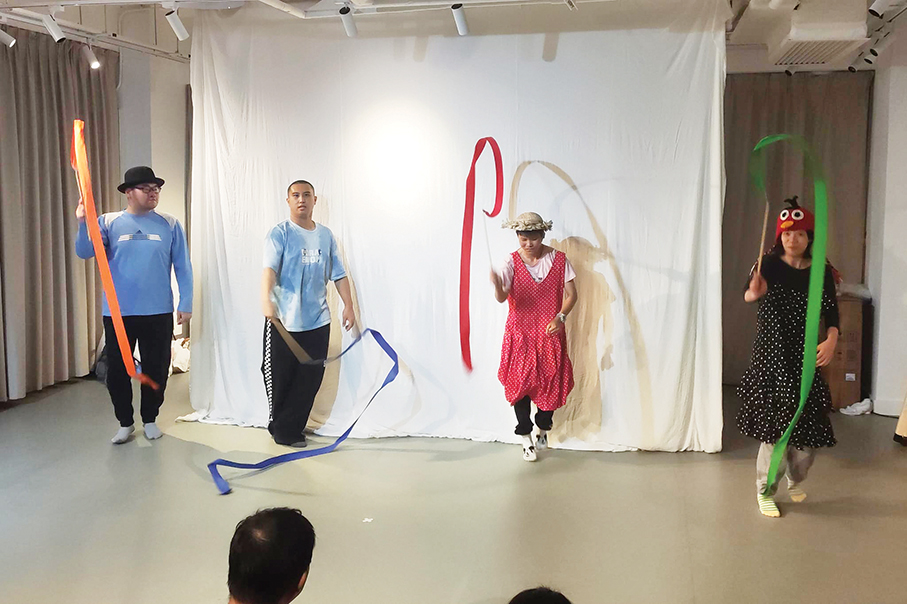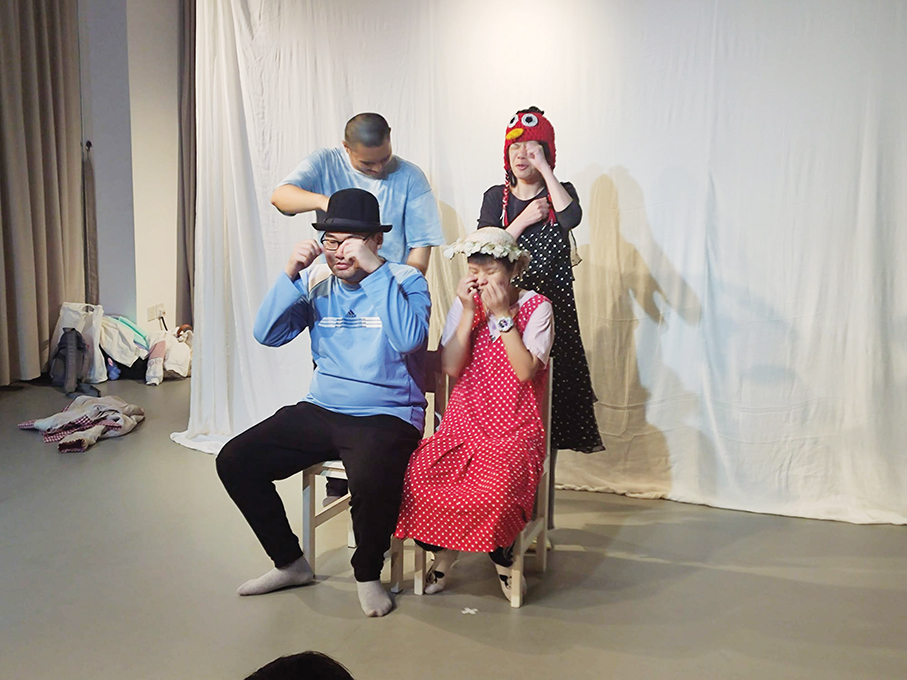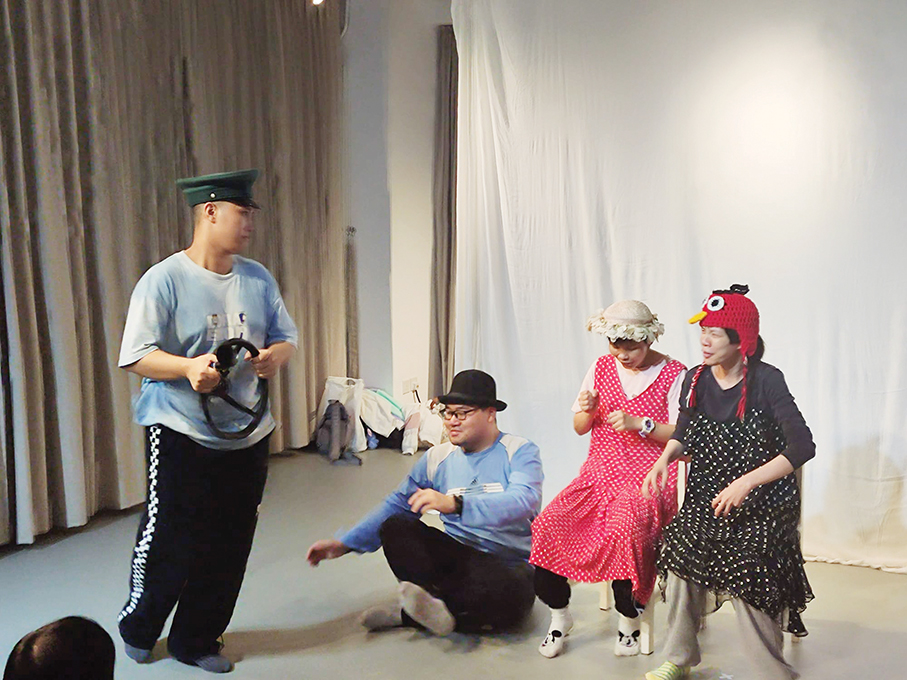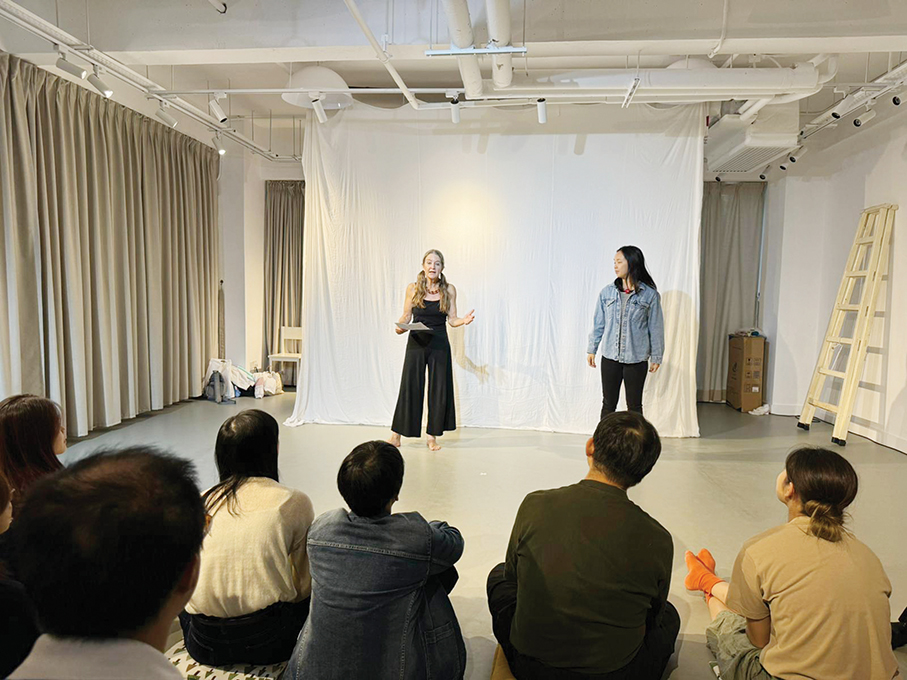Interview by William Chan
Christina Lewis, the director of the Clown School of San Francisco, led a “clown therapy” performance catered specifically to students with developmental disabilities on Sunday.
The afternoon event was hosted by Macau’s Comuna de Pedra (“Stone Community”) at an education centre in Nape. Following the performance, Lewis gave an interview to The Macau Post Daily, where she discussed the workshop and shared insights about the performance.
With over 20 years of experience, Lewis has been teaching clown character development, improvisation, and directing personal clown material. She has studied and performed Clowning in Europe, Central America, and the United States. Holding a master’s degree in Drama Therapy, Lewis utilises the archetype of the clown to promote personal growth. In addition, she works as a special educator, employing the clown and improvisation techniques to facilitate learning for students with developmental disabilities.
Comuna de Pedra, established in 1996 as a non-profit cultural and artistic organisation, has dedicated facilitators who have been working with special needs students in the association for an extended period. The primary objective is to assist them in exploring their full potential and expanding their expressive abilities.
“To achieve this objective, Comuna de Pedra aims to introduce a range of art forms, with clowning standing out as particularly impactful,” said Jojo, a spokeswoman for the organisation, following the performance. “Comuna de Pedra firmly believes that through clowning, the students can embrace the idea that it’s acceptable to encounter setbacks and that venturing along an alternative path can bring immense joy. The key lies in relishing the journey, reflecting the very essence of a clown’s performance,” she emphasised.
Teaching approaches
According to Lewis, clowning is an incredibly accessible art form for individuals with developmental disabilities due to its non-verbal nature and emphasis on simplicity, as well as physical and emotional expression. “It celebrates imperfections and failures as integral parts of the human experience, while focusing on humour and joy – two aspects that individuals with developmental disabilities often connect with effortlessly,” she noted.
During the interview, Lewis shared her approach to working with individuals with and without developmental disabilities in the realm of clowning. She emphasised the significance of simplifying and repeating exercises for individuals with developmental disabilities, ensuring they can master them without feeling overwhelmed. Lewis encouraged them to express emotions through their bodies and explore gestures as a means of emotional expression. The skit structures she teaches has an inherent “clown logic” and are designed to be fail-proof, allowing students to experience success, she said.
In contrast, concerning students without developmental disabilities, Lewis discussed her focus on delving into deeper emotional and physical self-examination beneath the social mask, aiming to uncover “the clown within.” She acknowledged that individuals with developmental disabilities might not engage in the same level of self-reflection. However, she noted that their true nature, physical impulses, and emotional expressions were often evident upon initial observation. Lewis highlighted the innate authenticity of these students, which made them natural and gifted clowns.
Clowning in action
Lewis highlighted her teaching methods with students with developmental disabilities, which involve helping them physically express emotions through gestures and sounds. She explained, “I provide opportunities for the students to learn simple skit structures that reflect everyday scenarios such as greetings, restaurant dinners, or waiting for the bus. In these skits, they are encouraged to embrace their wonderful, eccentric selves, expressing their unique gestures, timing, and expressions.” Through this process, students not only learn memorisation skills but also develop cooperation with their stage partners. She added that during the workshops they have the chance to explore and expand their emotional repertoire through practising emotional expression.
Lewis underlined that a live performance in front of an audience is a remarkable opportunity for the students to experience validation and success, which are often limited in their lives. “They have the chance to shine as stars, making people laugh, smile, and applaud them. The live feedback from the audience throughout the entire process of rehearsal, performance, and post-performance creates a sense of exhilaration and aliveness that is difficult to replicate in other situations,” she noted.


The four performers pose for a picture with sad faces. – Photos: William Chan

The four performers engage in a playful act, simulating a scene on a bus.

Christina Lewis (left) introduces the performers while Jojo provides English-to-Chinese translation during the event held at an education centre in Nape on a Sunday afternoon.
– Photo provided by Comuna de Pedra






